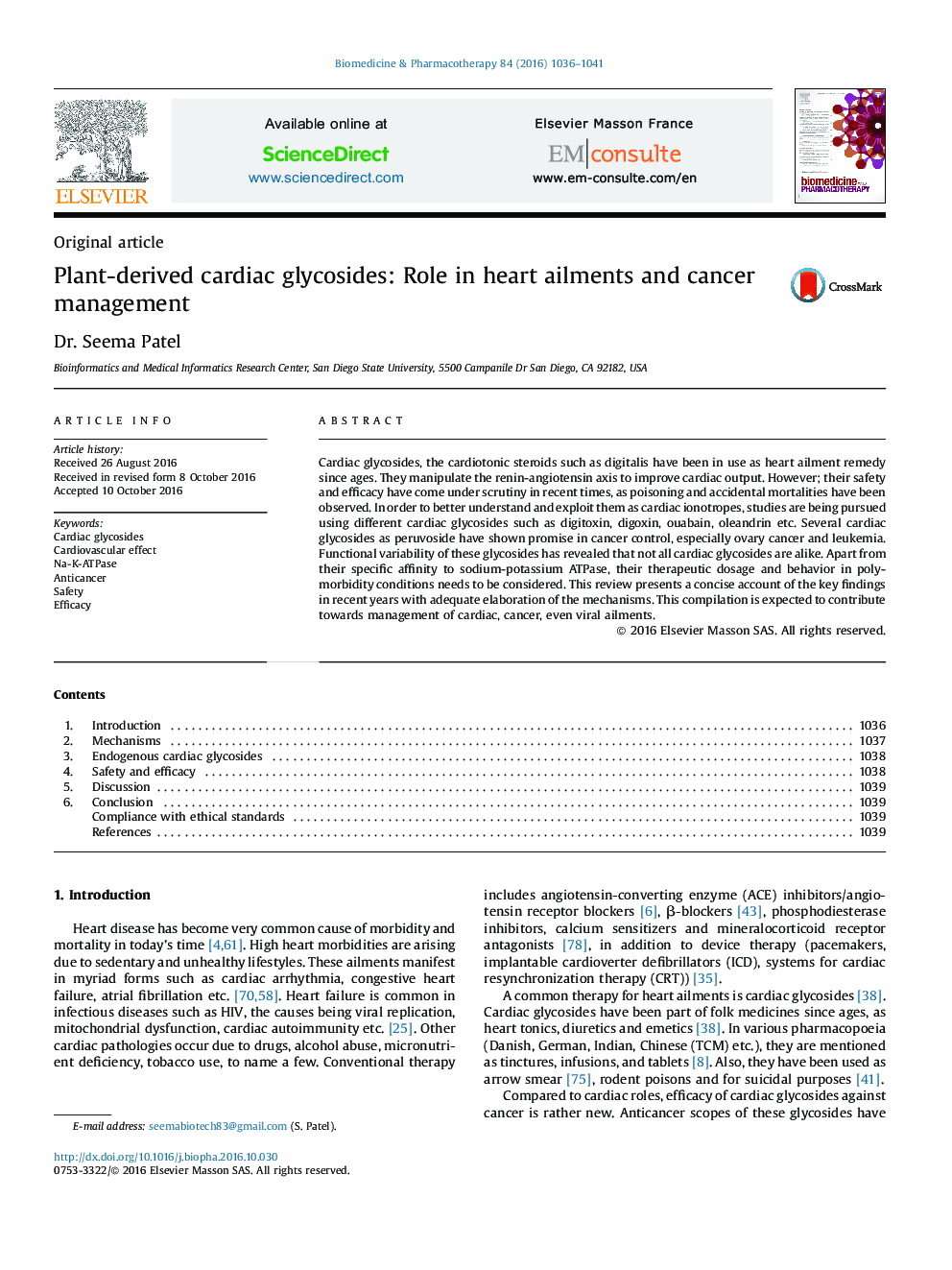| Article ID | Journal | Published Year | Pages | File Type |
|---|---|---|---|---|
| 5553320 | Biomedicine & Pharmacotherapy | 2016 | 6 Pages |
â¢Cardiac glycosides such as digitoxin, digoxin, ouabain, oleandrin are used for heart ailment treatment since ages.â¢Lack of information on proper dosage and specificity has led to accidental poisoning and mortality.â¢These glycosides have been validated to have anticancer roles.â¢The biological mechanism has been identified as Na-K-ATPase pump manipulation and regulation of renin-angiotensin axis.â¢This review discusses the latest findings in this area and suggests testable hypotheses for better exploitation of these glycosides in healthcare.
Cardiac glycosides, the cardiotonic steroids such as digitalis have been in use as heart ailment remedy since ages. They manipulate the renin-angiotensin axis to improve cardiac output. However; their safety and efficacy have come under scrutiny in recent times, as poisoning and accidental mortalities have been observed. In order to better understand and exploit them as cardiac ionotropes, studies are being pursued using different cardiac glycosides such as digitoxin, digoxin, ouabain, oleandrin etc. Several cardiac glycosides as peruvoside have shown promise in cancer control, especially ovary cancer and leukemia. Functional variability of these glycosides has revealed that not all cardiac glycosides are alike. Apart from their specific affinity to sodium-potassium ATPase, their therapeutic dosage and behavior in poly-morbidity conditions needs to be considered. This review presents a concise account of the key findings in recent years with adequate elaboration of the mechanisms. This compilation is expected to contribute towards management of cardiac, cancer, even viral ailments.
